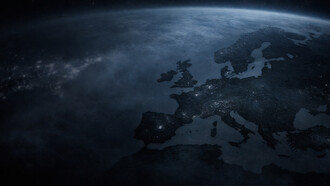"You consider yourself such a feminist, but aren't you happy that there is finally a woman in power? Isn't that a good thing?"
It had been some time now since I had started the very common political discussion with my father. We were in the car and as always the political topic had taken over. I, happy as always to talk about politics, wanted to continue on this path and see how much we could both learn from each other on that grey and cold day, classic of the German winter.
The question he had asked me was not a difficult one to answer, and I imagine that many other women would share my answer: "As for her, no, I am not happy at all". The she in question is Giorgia Meloni, who became Italian Prime Minister in September 2022. During that month I was in Italy. I still remember my frustration the day the election results came out, and I was not the least bit surprised. After all, all the people who shared my political ideology had prepared for this result – which makes it all the sadder, don't you think?
But why doesn't having Giorgia Meloni in power make me/us happy? After all, she is a woman, and as Hillary Clinton also said referring to her supposed victory: "The election of a woman as a Prime Minister in a country always represents a break with the past, and that is certainly a good thing".
Of this, however, I am not so convinced, and now I will also explain why.
First of all, as journalist Giulia Siviero also mentioned to openDemocracy, "being a woman does not automatically mean being a feminist. To claim that a woman – any woman – [who conquers power] is an achievement for all women and for feminism is for me very sexist, because it puts gender before the person and her political beliefs" – and we can all agree that Meloni's policies are certainly not based on feminist ideologies. We cannot deny that she has sometimes tried to denounce acts of sexual violence against women, but, if we look very closely, we can see that this has never really been a denunciation that has women's interests at heart, but more of a racist propaganda against migrants in the country. In fact, every tweet she posted in which gender-based violence was 'denounced' always had a migrant as the perpetrator of the assault. I find it hard to believe that this is purely coincidental. After all, we know very well what is the position of Meloni's party towards migrants. In this regard, I think it is important to say how violence against women is a huge structural problem in Italy. Between August 2021 and July 2022 alone there were 125 feminicides in the country, a number that, thinking about it, is quite staggering. The perpetrators of these feminicides are mostly Italian, but for the extreme right this does not seem to be important. What is important for extreme right-wing parties is the propaganda of xenophobic, racist and Islamophobic policies. The term 'femonationalism' has been coined to explain more properly this phenomenon, but I will discuss this in more detail in a future article).
Together with this, another aspect that demonstrates the little importance of feminism within Meloni's politics is undoubtedly her attitude towards abortion and LGBTQI+ rights. Indeed, Meloni describes herself as pro-family, and her party collaborates with anti-abortion and anti-LGTQI+ movements. She has always been committed to increasing Italy's low birth rate, encouraging native women to have children but at the same time denouncing the danger of 'ethnic replacement' by migrants (now, I am writing this, and I am seriously wondering what century we are currently in…). She always says how much she values women and how important it is for her to reach equality between genders, but her policies demonstrate something different. Just the face that she does not recognise and is not aware of the oppressive and unbalanced system in which being born a woman means starting from a position of disadvantage and discrimination says is all, doesn’t it?
In conclusion, this should be necessary to show how the victory of a woman as Prime Minister is not enough to be considered a victory for women (or for feminism). The fact of her being a woman is surely not enough to undo the ideological differences between her political line-up and ideals and the ideological roots behind feminism. In general, in my opinion, it is very difficult to find a meeting point between feminism and the extreme right. It is even more difficult to associate feminism and Giorgia Meloni, considering the fact that the latter advocates policies very close to those of the Italian Social Movement (Movimento Socialista Italiano), which would probably not even have granted women the right to vote, divorce or drive.















